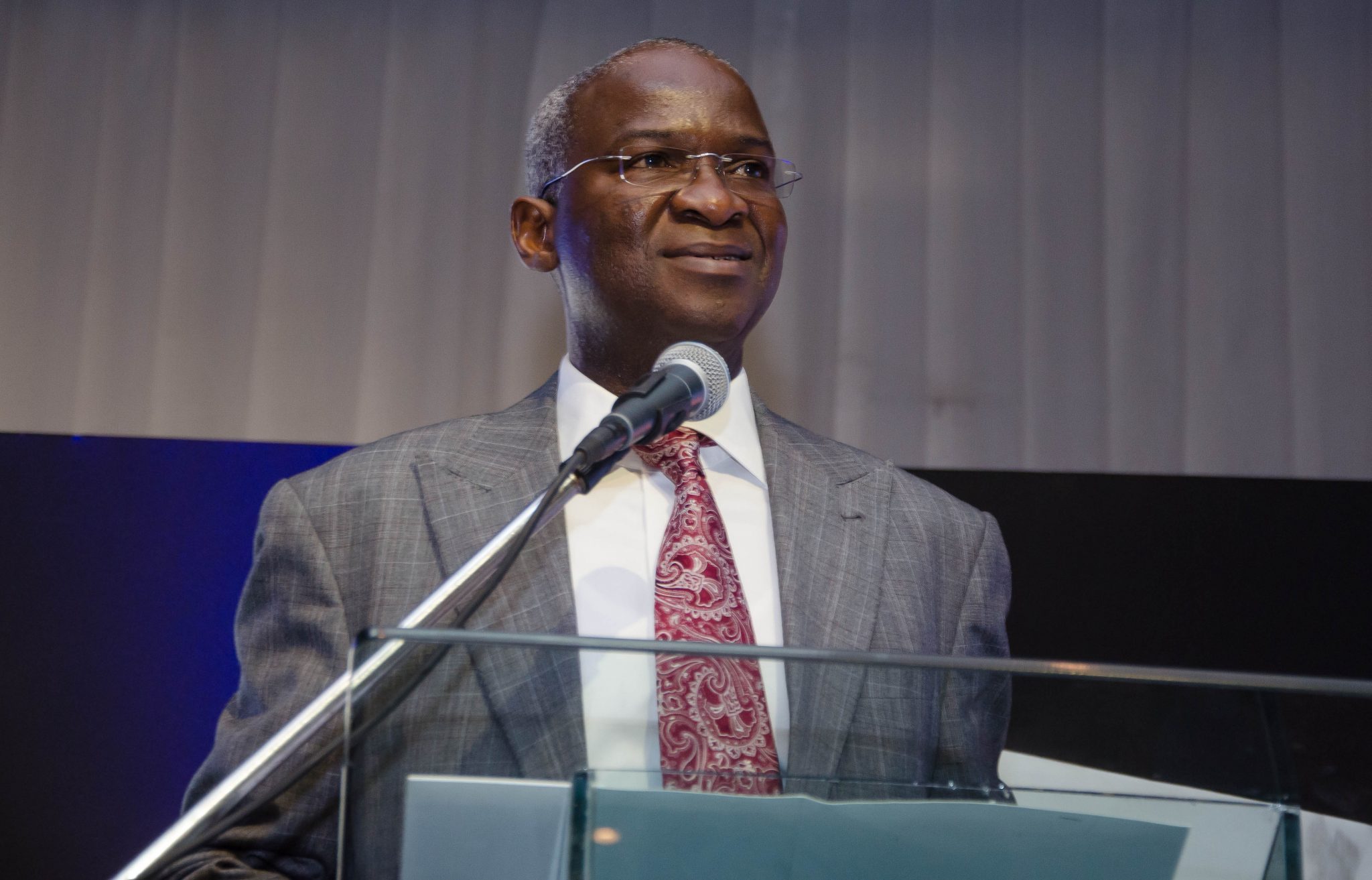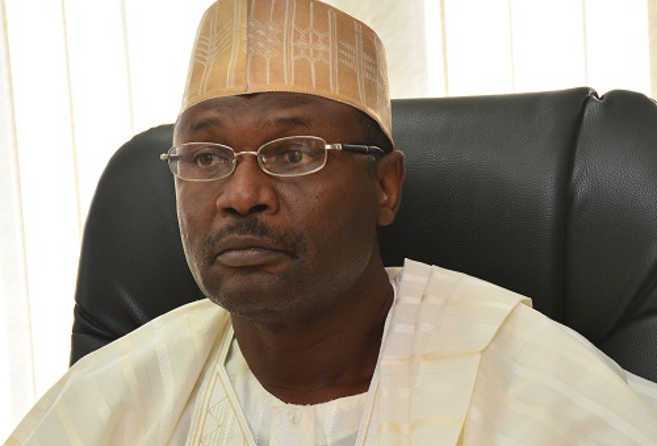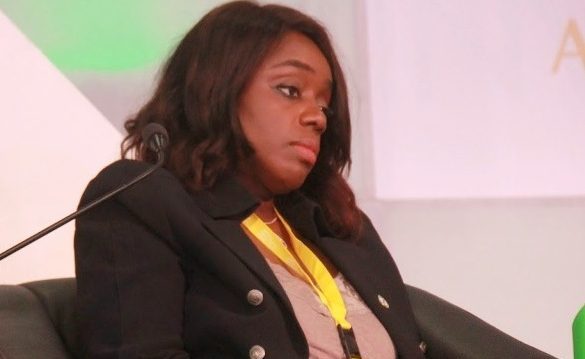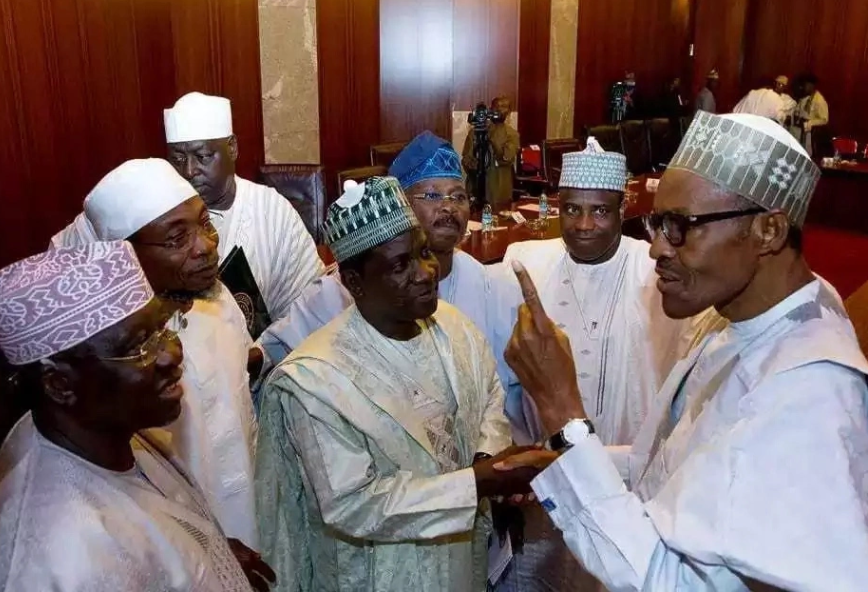Socio-Economic Rights and Accountability Project (SERAP) has filed a lawsuit asking the Federal High Court in Lagos to “stop the Senate President Bukola Saraki from paying former Plateau State governor, Senator Joshua Dariye N14.2 million monthly allowances while he serves out a 10-year prison sentence for corruption because such payment violates Nigerian law and international obligations.”
According to SERAP’s lawsuit, Mr Dariye is still receiving the N750,000 salary and N13.5 million monthly allowances from the Nigeran Senate six months after his conviction. In June, an FCT high court convicted Dariye for diverting N1.162 billion state ecological funds while he was governor. He was sentenced to 14 years in prison, which was later reduced to 10 years by a court of appeal in Abuja. Dariye is said to have been paid N85.5 million as allowances since his conviction.
Joined as Defendants in the suit are: Mr Dariye and the National Assembly Service Commission.
In the suit number FHC/L/CS/2146/18 filed last Friday, SERAP argued: “Mr Saraki and the National Assembly Service Commission are trying to override Nigerian law and the judgment of our court by continuing to pay Mr Dariye’s allowances while he serves out a 10-year prison term and unable to sit and perform the functions of a senator. This action undermines the rule of law and is a great moral failure because it sends a message that corruption pays—it’s the opposite of Nigerian Constitutional principles and international obligations.”
The organisation also argued: “Stopping the Defendants would ensure that only sitting and serving senators are worthy of drawing salaries and allowances from the public treasury. It would also further the public interest and general public confidence in the government it elects. The interest in public confidence is greater than the convicted person’s interest in continuing to receive allowances while serving his sentence for corruption in Kuje prison.”
The 15-page lawsuit read in part: “Mr Saraki and the National Assembly Service Commission should be immediately restrained from unlawfully paying salaries and allowances to Mr Dariye who is serving jail term. Restraining them would send a clear message to Nigerian elected officials that corruption does not pay and contribute to promoting accountability and fostering public trust and confidence in Nigeria’s democracy, the rule of law and the governance system.”
“By paying Mr Dariye’s allowances while in prison, Mr Saraki and the National Assembly Service Commission have destroyed the efficacy and purpose of Mr Dariye’s conviction and have brought the rule of law and administration of justice into disrepute. SERAP and the public are alarmed by the action of Mr Saraki and the National Assembly Service Commission and they ought to be restrained by this Honourable Court.”
“Mr Saraki and the National Assembly Service Commission should not be allowed to continue to make a mockery of the rule of law, our process of administration of justice and our judicial system by behaving as if the Nigerian Senate is not bound by the court judgment which convicted and sentenced Dariye for corruption. Mr Saraki and the Nigerian Senate should be compelled to respect and obey decisions of the court.”
“By continuing to pay Mr Dariye’s allowances after his conviction and while in Kuje prison and unable to sit and perform the functions of a sitting senator, Mr Saraki and the National Assembly Service Commission have played a negative role to wit: undermining the authority and integrity of the court. Mr Saraki and the National Assembly Service Commission knew or ought to know that Mr Dariye has been convicted and sentenced and now serving his jail term in Kuje prison pursuant to a decision of a competent court.”
“Mr Dariye, having been convicted, sentenced and currently serving jail term in Kuje prison can no longer by virtue of his imprisonment lawfully carry out or perform the duties of a senator. Mr Dariye ordinarily ceases to be a senator, as per the provisions of section 66 of the 1999 Constitution of Nigeria (as amended).”
“Section 68(1) provides that a senator shall vacate his/her seat if any circumstances arise that would cause him/her to be disqualified for election as senator. This is exactly what happened to Mr Dariye, who is, as a result of his imprisonment, no longer fit to be a senator let alone be entitled to allowances of a sitting senator. Similarly, a senator shall vacate his/her seat if without just cause, he/she is absent from meetings of the Senate, for a period amounting in the aggregate to more than one-third of the total number of days during which the Senate meets in any one year”
“Mr Dariye is no longer a senator having been convicted, sentenced and currently serving prison terms and having been in prison since June 12, 2018, he is caught by the provision of section 68(1)(f) as it is practically impossible for him to sit as senator.”
“Mr Dariye, having been absent for a period amounting in the aggregate to more than one-third of the total number of days during which the Senate meets in 2018, is disqualified and therefore his seat has automatically become vacant. Mr Dariye is no longer entitled to be paid and/or to receive the allowances of a sitting and serving senator.”
“Mr Dariye’s conviction remains in effect until it is set aside. Therefore, the argument that he has appealed his conviction will not hold water. A judgment of a competent court of law subsists until set aside on appeal. The Supreme Court of Nigeria has made this point very clear in several cases.”
“So long as the decision exists, it must be obeyed to the letter. A judgment of court, no matter the fundamental vice that afflict it, remains legally binding and valid until set aside by due process of law. As the Supreme Court has said, the judiciary like all citizens of this country cannot be a passive on-looker when any person attempts to subvert the administration of justice and will not hesitate to use the powers available to it to do justice in the cases before it.’’
“Mr Dariye cannot justly and reasonably earn the allowances of a sitting and serving senator, having been convicted and sentenced and serving a prison term. Under the common law principle of money had and received, Mr Dariye is under a legally binding duty to return all such salaries and allowances to the public treasury, having not justly earned such. Mr Dariye should be compelled to return the allowances he has received so far since his conviction.”
“SERAP is seeking an order restraining Mr Saraki and the National Assembly Service Commission from paying Mr Dariye any further allowances while serving his jail term in Kuje prisons, Abuja.”
“SERAP is also seeking a declaration that the seat of Mr Dariye in the Senate is automatically deemed vacant, having being convicted and sentenced to a prison term and currently serving jail term and having been absent at the sessions of the Senate for a period amounting in the aggregate to more than one-third of the total number of days allowed, and that he is therefore, not entitled to any allowances reserved for a sitting and serving senator.”
“SERAP is also seeking an order compelling Mr Dariye to return all salaries and allowances paid to him as a senator while in prison, having not performed the functions and office of a sitting and serving senator and having not deservedly earned such.”
“Unless the reliefs sought are granted, Mr Saraki and the National Assembly Service Commission will continue to act in flagrant defiance of the judgment of the court, the independence and authority of the court, and the rule of law. It is in the interest of justice to grant this application as the Defendants have nothing to lose if the application is granted.”
No date has been fixed for the hearing of the suit.
The Socio-Economic Rights and Accountability Project (SERAP) has sent a Freedom of Information request to Sule Kazaure, Director-General of the National Youth Service Corps (NYSC) asking him to “urgently provide information on specific details and documents on the Exemption Certificate granted to the Minister of Finance, Mrs. Kemi Adeosun”.
The organisation also asked Mr Kazaure “to provide information and documents on whether Mrs Adeosun applied for NYSC Exemption Certificate, and if she did, to clarify whether the NYSC actually granted her the Exemption Certificate, the circumstances and the provisions of the NYSC Act under which the Exemption Certificate was granted”.
The organisation said it “needs the information to determine if the crime of forgery has been committed, and if so, to consider possible action in the circumstances, including but not limited to asking the Attorney General of the Federation and Minister of Justice Mr Abubakar Malami SAN to pursue prosecution or in the absence of that, for us to consider the option of a private prosecution”.
Its statement signed by Timothy Adewale, deputy director and released on Thursday reads in part:
“In the FOI request dated 2 August 2018 and signed by SERAP deputy director Timothy Adewale, the organization said, “By providing information and documents on the Exemption Certificate, the NYSC would help put an end to any insinuation of complicity and show that the institution can embrace transparency and accountability in the discharge of its statutory mandates. This would in turn contribute to improved integrity and public image of the NYSC.”
“According to the organisation, “Mrs Adeosun remains innocent until the allegations against her are properly tested and proven beyond a reasonable doubt in a court of competent jurisdiction based on relevant admissible evidence. But the continuing silence by the NYSC management on the matter may create an impression that an offence may have been committed, and lead to accusation that the management has something to hide.”
“The letter read in part: “We urge you and the entire NYSC management and leadership to open-up on the matter and provide information and documents as requested. This will be one step in the right direction. If the information is not provided to us within 7 days of the receipt and/or publication of this letter, the Registered Trustees of SERAP shall take all appropriate legal actions under the Freedom of Information Act to compel you to comply with our request.”
“SERAP is concerned about the perceived lack of transparency and accountability of the NYSC management and leadership in this matter, which has seriously undermined public trust and confidence in the NYSC as a public institution established to serve the public interests.”
“SERAP notes that following allegations of NYSC Exemption Certificate forgery against Mrs Adeosun, the NYSC management issued a statement confirming that she did apply for an Exemption Certificate and promising to ‘investigate the origin of the purported Exemption Certificate in question.’”
“However, we are concerned that the statement lacks specificity as to whether Mrs Adeosun was issued the Exemption Certificate. Further, although the statement was issued on 9 July 2018, the NYSC management has so far failed and/or neglected to publish the outcome of the investigation it promised. Nigerians are also entitled to the right to truth derived from the obligations of the government and its institutions to carry out an investigation into allegations of issues like forgery that have been levelled against Mrs Adeosun.”
“By Section 1 (1) of the Freedom of Information (FOI) Act 2011, SERAP is entitled as of right to request for or gain access to information, including information on the circumstances and the provisions of the NYSC Act under which any NYSC Exemption Certificate was granted to Mrs Adeosun.”
“By Section 4 (a) of the FOI Act when a person makes a request for information from a public official, institution or agency, the public official, institution or urgency to whom the application is directed is under a binding legal obligation to provide the applicant with the information requested for, except as otherwise provided by the Act, within 7 days after the application is received.”
“By Sections 2(3)(d)(V) & (4) of the FOI Act, there is a binding legal duty to ensure that documents containing information relating to the granting of any NYSC Exemption Certificate are widely disseminated and made readily available to members of the public through various means. The information being requested does not come within the purview of the types of information exempted from disclosure by the provisions of the FOI Act. The information requested for bothers on an issue of national interest, public concern, good governance, transparency and accountability.”
The Buhari-led administration is yet to address the forgery allegations against Mr Adeosun, weeks after PREMIUM TIMES first broke the story on how the finance minister avoided the mandatory one year youth service and thereafter obtained a forged exemption certificate to cover her tracks.





